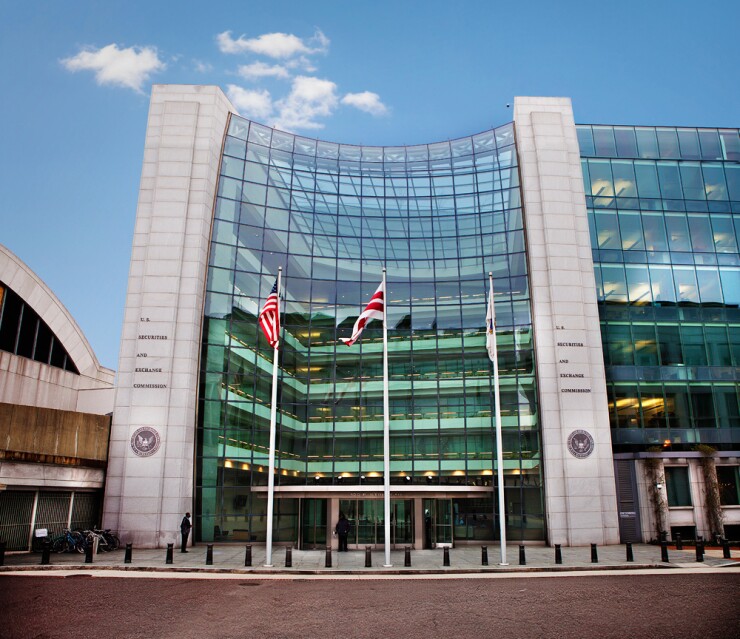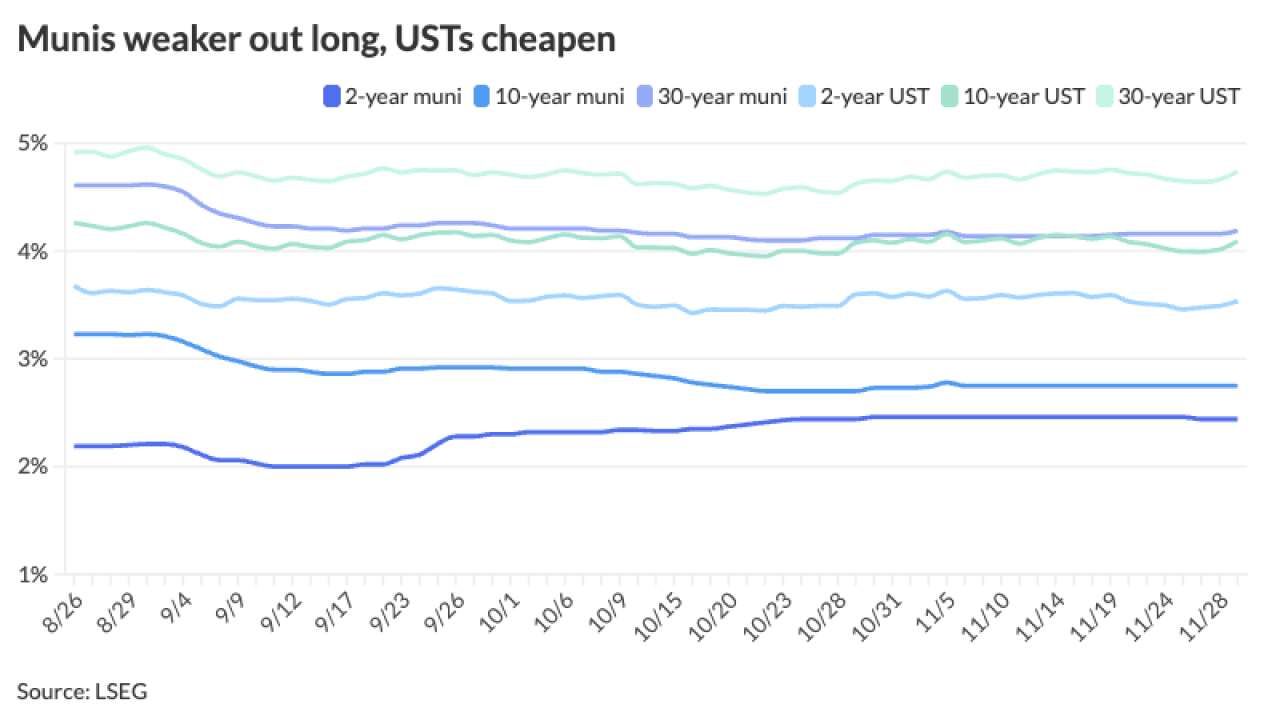
The Securities and Exchange Commission and Jeffrey De Laveaga – one of three defendants charged by the SEC with defrauding investors in connection with approximately $284 million of municipal bonds sold to finance an Arizona sports complex – have reached a partial settlement barring De Laveaga from participating in future securities business.
A May 5 court filing shows that the court approved a partial settlement with De Laveaga, which the SEC had said in an earlier filing would "resolve certain of the non-monetary relief that the SEC seeks in this case against De Laveaga, but leave open for later resolution by motion (or further settlement) the monetary relief sought."
"Defendant is permanently restrained and enjoined from directly or indirectly, including, but not limited to, through any entity owned or controlled by defendant, participating in the issuance, purchase, offer, or sale of any security; provided, however, that such injunction shall not prevent defendant from purchasing or selling securities for his own personal accounts," the court ordered.
De Laveaga has entered a guilty plea in a related criminal case, United States v. De Laveaga, and a control date for sentencing is set for Sept. 25, the SEC told the court.
"The SEC anticipates that the parties will attempt to negotiate a resolution of the unresolved relief the SEC seeks after De Laveaga's sentencing," the letter said.
The
In an affirmation and application dated March 25, Assistant U.S. Attorney Matthew R. Shahabian said that the government understood that "the defendant is planning to waive indictment and plead guilty to the information, pursuant to a cooperation agreement with the government."
Should the information or related documents be made public, it would alert "other investigative targets" that De Laveaga was cooperating with the government, Shahabian said in the application. U.S. District Judge Ronnie Abrams granted the application for the temporary sealing of filings and other docket entries in the case, an April 1 filing showed.
On April 1, Matthew Podolsky, the acting U.S. attorney for the Southern District of New York, and Christopher G. Raia, the assistant director in charge of the New York Field Office of the Federal Bureau of Investigation, announced the unsealing of an indictment charging Randy Miller and his son, Chad Miller, with engaging in a scheme to
Also on April 1, the SEC filed a complaint against Randall "Randy" Miller, Chad Miller and De Laveaga in the U.S. District Court for the Southern District of New York. According to the complaint, the matter involved a "fraudulent scheme" to offer and sell about $284 million of municipal bonds issued for the benefit of Legacy Cares, an Arizona nonprofit corporation.
Legacy Cares issued the bonds – now defaulted– in August 2020 and June 2021 via the Arizona Industrial Development Authority, a conduit issuer, the complaint said. The 2020 and 2021 offerings were both revenue bond offerings, which meant that the cash necessary to make interest and principal payments to bondholders was to come from revenue generated by the sports complex after it opened in 2022, the complaint said.
The limited offering memorandum for the 2020 bonds included financial projections reflecting revenue that was "multiple times" the amount necessary to cover payments to investors in those bonds, the SEC's complaint said.
Dozens of "letters of intent'' – purported to be from various sports clubs, leagues and other entities signaling the intent to move events or operations to the sports complex – were attached to the limited offering memorandum, which referenced them as the basis for the revenue expectations, the complaint said.
"However, the majority of the more than 50 letters of intent were either totally fabricated or materially altered in some fashion, including the forging of signatures, by Randy Miller, Chad Miller, and De Laveaga in the months leading up to the 2020 bond offering," the SEC's complaint alleged. "Each Defendant knew or was reckless in not knowing that he was creating false documents, and that the documents would be disseminated to investors."
The limited offering memorandum for the 2021 bond offering also incorporated the letters of intent, according to the SEC's complaint.





